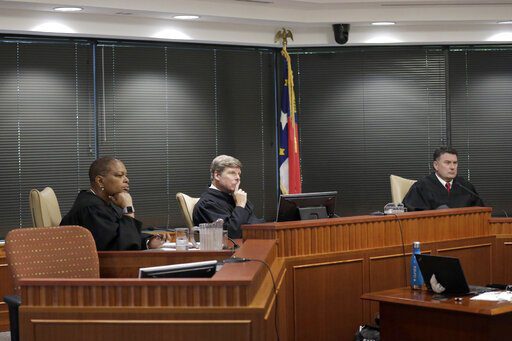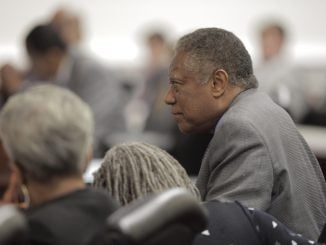
RALEIGH — A North Carolina trial court has rejected state legislative district maps, saying lawmakers took advantage from drawing districts to help elect a maximum number of Republicans. The three-judge panel of state judges ruled Tuesday that courts can step in to decide when partisan advantage goes too far.
“Partisan intent predominated over all other redistricting criteria resulting in extreme partisan gerrymandered legislative maps,” the judges wrote in their ruling. “The effect of these carefully crafted partisan maps is that, in all but the most unusual election scenarios, the Republican Party will control a majority of both chambers of the General Assembly. In other words, the Court finds that in many election environments, it is the carefully crafted maps, and not the will of the voters, that dictate the election outcomes in a significant number of legislative districts and, ultimately, the majority control of the General Assembly.”
Republicans argued there’s no clear way for judges to know what kinds of redistricting are unacceptable. Democrats and their allies said the districts were so gerrymandered they unconstitutionally insulated politicians from changing voting behavior.
Senate Leader Phil Berger (R-Eden) issued a statement after the court’s decision saying the General Assembly would move forward with adoption of a “nonpartisan map.”
“This case is the next step in Eric Holder’s drive to use judges to create a Democratic majority,” said Berger. “Thwarted at the U.S. Supreme Court, Holder has turned to state courts with Democratic majorities to, in his own words, ‘favorably position Democrats’ to game the redistricting process.”
Berger also said the court’s ruling “contradicts the Constitution and binding legal precedent.” However, he said that it was time to “finally put this divisive battle behind us. Nearly a decade of relentless litigation has strained the legitimacy of this state’s institutions, and the relationship between its leaders, to the breaking point. It’s time to move on.”
In the 357-page ruling, Judges Paul Ridgeway, Joseph Crosswhite, and Alma Hinton said the maps violated the N.C. Constitution. The judgment in the case also rejected the use of federal law, including the recent U.S. Supreme Court decision that held federal courts should not decide redistricting disputes.
The court also said it would not stay its ruling pending any appeals and retained discretion to move the primary dates. The court gave lawmakers until Sept. 18 to again redraw maps.
If the case is appealed, the outcome could be months away. The state Supreme Court’s composition is 6-1 in favor of Democrats.



